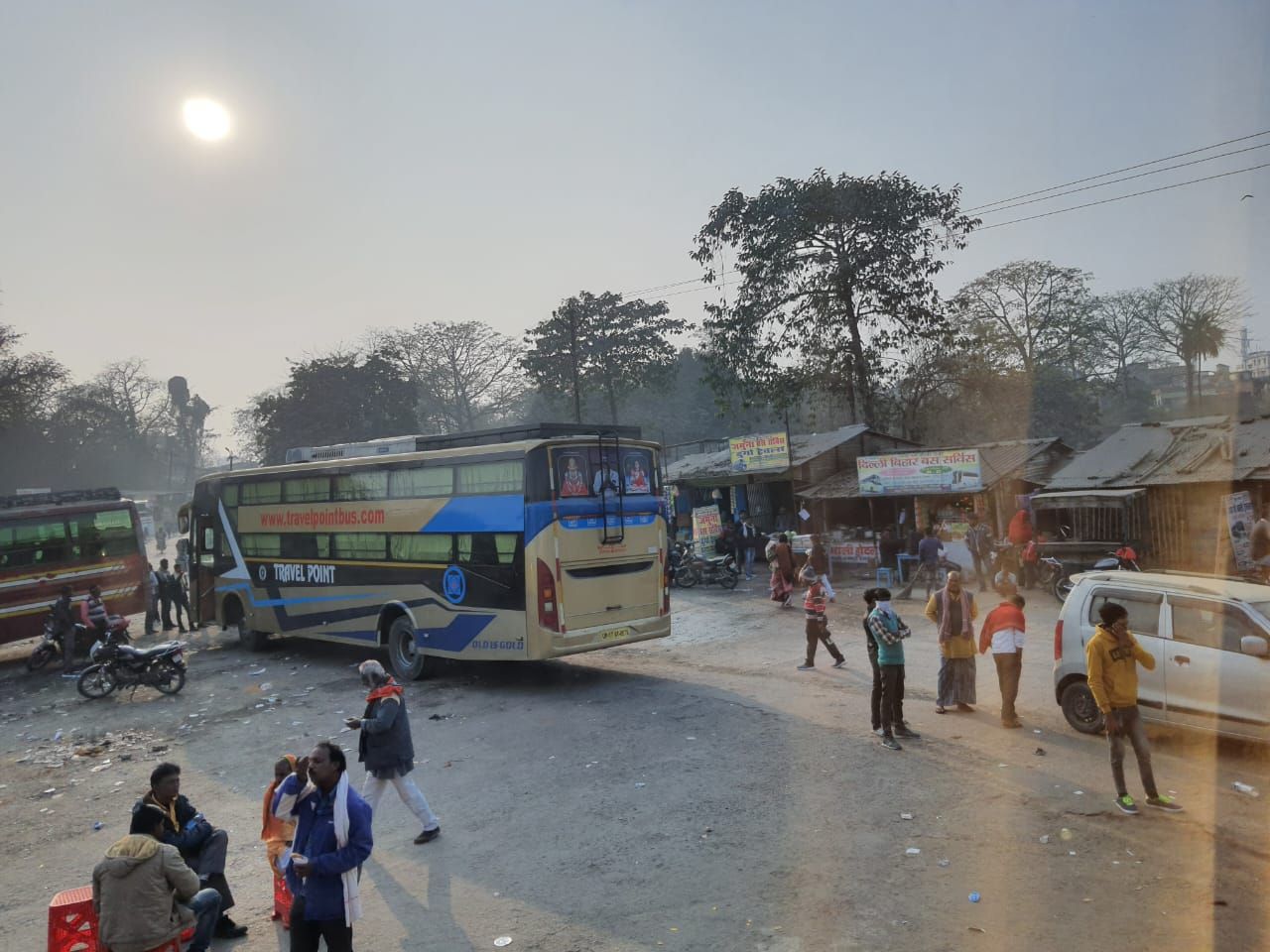Burned Businessman
10/14/2025

In India, even a streetside chaiwala wants to be an investor—except this ambition is really almost a license to scam the fuck out of anyone looking for money to start a business. So be warned, if you are a foreigner or NRI, that, most definitely, it’s a lie. The fuckfaces are all just pretending, and they don’t shy away from crafting castles of lies in which live a relative—a relation that they make up to con—a relation in a position of power, or a relative to one in power, or a financier, or a financier’s dingleberry dung chutney—bullshit garnished with horseshit. I fell for it because people who had initially invested in the company introduced me to this hell. And usually, because the law can’t be strict, because India is a fucking kakistocracy, you’ll be left holding promises that are never going to be kept at the end of a long chain of lies—yourself then transitively branded as a fraud and liar as a causal happenstance that’ll fuck your future for the rest of eternity, essentially sabotaging all possible roads to recovery.
And in my case, even my passport was taken from me. As I said, this is a country where, unless you’re Microsoft or Google, fuck’s your father—and you’ll have a leaky anus for the rest of your life from this one ass-gaping. The only thing I can say is I didn’t survive it. I am alive still, but I don’t have to go to the fucking loo anymore, as my asshole is as capacious as the India Gate. India is thus this promiscuously and unabashedly unreliable country to its citizens; in any situation the unfortunate denizens can dream up, they’ll always find fitting and exemplary unprecedented standards that no other country can match.
There’s a nuanced difference between being unreliable and being chronically disinterested — the former is more pernicious, if only because intent isn’t clear at the outset. For the vast herd who’ve never crawled out of their fenced, parochial wells, who’ve read nothing beyond the domesticated drivel their schools and WhatsApp feeds shove down their throats, my objections to India’s self-advertised fantasy as some Vishwaguru sound like rudeness. But that’s only because mediocrity hates mirrors. I write, I satirize, I provoke—because unless you’ve tried to build something vast, to dream at continental scale, to drag this country’s inert weight uphill, you won’t understand the bruises I carry. You’ll call it cynicism; I call it the scar tissue of ambition. This post among others will explain my position in this ecosystem.
In my fleetingly short honeymoon as an entrepreneur, I did make some business projection errors and had an uncomfortable feeling about some assumptions about how much of reality was really under my control. The variables were real and properly defined, and the logic was impeccable, but it didn’t work out because business isn’t like physics. Nature obeys the laws of physics, and if you have understood the problem and your equation models or approximately approaches the real physical phenomenon, your products wouldn’t betray you like the extremely venal and impecunious archipelago of the business world in India in which I chose to work, inadvertently. Everything seemed alright from a distance, but when I landed in India, trouble ensued. It didn’t take long for the savage proclivities to bare their teeth and show their real selves. Be warned, would-be travelers, it’s very reptilian; if not the venom, it’s the spit that’s going to get you.

Perhaps a little light on the nature of the trouble is in order. For example, if you make pressure cookers, you’re good if at normal atmospheric pressure and temperature of 100°C, your cooker without pressure boils water for eggs, and faster if you use pressure. If you expect this to work at an elevation of 65 miles on a suborbital jaunt, it wouldn’t—that’s setting up the expectation against the laws of physics. But a human conspiracy at the equator can’t ordinarily do anything to subvert the boiling point of water to make you look bad, and your product would continue to deliver boiled eggs anywhere within the parameters provided you correctly specify them.

This is not the same experience you can expect in a business equation, even if you have been an unyielding stickler for defining the parameters. And extraordinarily, partners, associates, or investors turned out, in my case, to be seditious liars who lied through their misaligned teeth about their abilities and commitments. But they were not the exception but the rule. You, a person of clear arithmetic, would be persuaded to think that they would follow through or have scruples, but they don’t; you can’t assume they even intend to—“yes” is often a hidden chuckle and “hell-no.” But I found out after my boat sank.

India is a country of maximum seediness, and you only learn by burning your ass on the hot chair. That’s particularly why the laws of human nature are so hard to work with without enough civilized leeway, checks and balances, second and third failover insurances, friends who aren’t there for your wealth, and people who really understand you, because in the midst of crushing failure, most people end up quite lonely. I have. And my credibility is burned by being at the end of a chain of inauthentic people.
But people like us—small entrepreneurs—can’t give up; I don’t know how, even as half-brained and half-mad as I am, if I can survive my frail health and drained luck, I can rebuild and reinstall the goodwill and intentions that are quite necessary in this increasingly difficult world. There are still some real problems that need good people and practical solutions, not ostentatious pretend workarounds that can buy some superficial stardom and glib social affinity. But I can’t risk it in India. I’ve learned my lessons. Unless you are a big business, you will die quickly and painfully; take my caution.

My mom sometimes regrets the injudicious decision to send me to a good school, to encourage me to go abroad, or to inspire any of the imputations of success or greatness that education provides. Most of my peers who had failed academically were driven to figure out where Machiavelli lived, and in doing so, they carved out a prosperous trajectory. Not knowing the distorted frames of mind is a significant problem when you want to acclimate to a society that’s driven by irrational forces. Here, mathematics never adds up; in fact, you’re encouraged to smudge the sum and figure out how to create fibs out of things that would otherwise never balance. It’s therefore not surprising if you notice the ratios of mixtures aren’t what they are supposed to be in most products. It’s one thing when it’s iodine in salt; it’s quite another when it’s sand in cement, urea in milk, or the lies you hear in a day in the background of expectations. In a system such as this, the cogs can’t be noisy or they’d be replaced, and if people have to eat, they have to cross the Rubicon. But the water from Rubicon is also adulterated with assholes and arsenic, so you just give up and die of poisoning, or you give in and just become another poisonous part of the vile business machine. And really I don’t have any urge to step into this sewer current a second time because I am frail, frustrated, and fortunate to have stepped out of this trap in my earlier estimate of where I needed to be in life. A wiser reassessment is that these goals are often feudal, parochial, unnecessary indoctrinations—often of the treadmill sort that capitalism feeds on—and the world is better off with the previously ambitious on a side of a North Calcutta drain, so that, like all effluents, I can get flushed and better minds—younger, more mature, and prepared entrepreneurs (with human intelligence AI augmented) or seasoned business leaders with alligator hide—can step in. Like my sperm count, my enthusiasm has dried up, and all I am is a futureless Bengali reject hobo who’ll probably go completely mad one day and step into the refuge of his insanity in its amnesiac oblivion and stop writing long pissy posts that no one wants to read!
And again, I am sorry I repeat myself mindlessly and endlessly, but trust me the glossy “India Rising” brochures won’t tell you: every inefficiency, every kickback, every missing bolt and counterfeit seal, every under-the-table permit and phantom invoice is lashed together into a giant Rube Goldberg machine whose only reliable output is misery for the naïve NRI returnee with dollars in his pocket and a dream in his head. You think you’re making an investment; in truth you’ve bought a one-way ticket to a casino where the dice are shaved, the cards marked, the dealer drunk, and the pit boss in on the con. To be an NRI entrepreneur bringing capital back is not patriotic, it’s suicidal—because the “system” isn’t broken, it’s a finely tuned meat grinder that runs on your optimism, chews through your savings, and spits out your bones as yet another cautionary tale.
But it’s important to accept for a fact that this evolution of AI is here to stay — even in the sense of narrow AI with its narrow uses, it doesn’t matter which company succeeds, which investors make money and who lose. We have to differentiate between a pivot technology—like the plough, the printing press, the loom, the steam engine, then computers, and now AI. There’s a contemporary network of people, places, influences, and finance that start or are foundationally related to each point. But these vanguards are not permanent fixtures on the landscape—just the first faces. Some will live on, most will die. It’s a natural cycle of purge. The real fixtures are the technologies or the initial products that keep evolving and staying alive in an evolutionary arms race, becoming whatever it is that we want—or allow—it to become. And all extremely powerful technology has a sword’s double edge. Even the sun, which makes life possible, does so only because we are at a Goldilocks distance. Any nearer to that nuclear furnace and we’d all be charred corpses.
Any person alive, not just one with entrepreneurial intent should know that the world post 2025 — if you read any of my previous posts or laments — will be different. You won’t be able to get away with superficial facts, because just as AI makes it easy to generate spurious text, AI also makes it easy to reveal false impressions. Not only will AI make things simpler it will also simultaneously make the usefulness of it evaporate to obsolescence rendering lying, learning, lusting and even living seem increasingly moot. AI will, at least in India, force more pretensions, arbitrary arbitrage, untraceable immoral and unscrupulous actions, and an evaporation of self-worth—worsening the class hierarchy between the haves and have-nots, and, among the educated haves, creating a struggle to stay authentic while more and more people simply survive by passing off the work of AI as their own. This was always true to some extent between humans, but the gap in output quality between a human and all knowing AI will make it detectable and create a new, derision-worthy Indian clerk class. If it was crowded before with the biologically unintelligent, it will now be overwhelmingly overcrowded—impossible for most to be distinct or even visible. Invisibility will be the norm; humanity’s oblivion will be written every day, with everyman now dead for all practical purposes, this new Indian clerkdom would be the only ignominious after life. And that simplistic ambition thrown at first-world denizens looks morally reprehensible even to say here—imagine asking billions to “go do art or something” because AI feels thwarted if you’re still in the office. And basic free income because you’re human, in India? Come on, don’t make me shit myself with excess humor.
If you care at all about the future, try to realize what is authentically you—what your true resources really are—being cognizant of the reality of the business world as well as the everyday world disconnected from economic strings. If you stay gullible, you will only meet with more chronic issues. Specifically, business realities, unlike glib facts made up, in a law-abiding land at least, are like the laws of physics—they hold whether you like them, love them, or abhor them. AI is going to make it easy to enforce laws more stringently than ever before; eventually it will be almost like the George Orwell dystopia he sculpted in 1984.

By the way, his real name was Eric Arthur Blair, and he was born in Motihari, Bihar. I’ve been to Motihari—the birthplace of the man who wrote Animal Farm can only be described as a pigsty. On exhibition is the general state of corruption, civic mismanagement, and the proclivity of the populace to be complicit with the lackadaisical manner in which kakistocracy ruins a place. It’s sad but representative—it’s what Indians and India have become.

A few days back there was an “almost” cloudburst situation in Calcutta; the resulting deluge made a usually drainage-deprived city look dressed more in preternatural calamity than usual, and the water still hasn’t receded in some parts, staying as recalcitrant remnants in pools of stagnant, potholed crevasses that make accidents easy and everyday. Electricity is always not where it should be, waiting to electrocute someone, and the City of Joy spends a few newspapers’ worth of political volleyball over blame until the next downpour and flash flood. This is why Indian cities are bad places for any sort of investment—because all it takes is one downpour to spoil not just the cosmetics of the gentrification but the very machinery that runs it. Nobody wants to understand the problems at the roots, or really address them, and this is symptomatic across all aspects of the Indian society. The real apocalypse is during the idol “bisarjans” of the various gods that outlive the temporary and shallow bengali welcome, and the swollen city, chronically waterlogged and half-drowned, is asked to gulp down thousands of these idols, their paints and powders and plastic gewgaws, as if the Hooghly were a bottomless sacrificial pit. Picture it: processions jammed on crumbling flyovers, the rain returning like a drunk relative who forgot his umbrella, the streets converted into slip-and-fall aquariums, police cordons no more useful than paper boats, and the riverside choked with an avalanche of clay limbs and bamboo skeletons. The drainage, already constipated from the last storm, will seize up completely; the power lines, loose and hissing, will hunt for new victims in the ankle-deep broth; and the “City of Joy” will stand revealed in its truer form, a carnival of entropy where the gods themselves are drowned in the same filth as the people who worshipped them.
As I become older, elder, and more frail, I have to guarantee my own survival in this Indian slime, at least by speaking out while I still can, because later I may not even be able to type or articulate, and people will come and piss on my face or shit in my mouth while I am still alive. People are incredibly selfish—I see that every day—and extremely cruel, and that’s why it’s the survival of the people who try to survive; if you don’t, or stay on cloud nine perpetually, you’ll be fucked so badly in your ass that turds will come galloping out of your mouth.